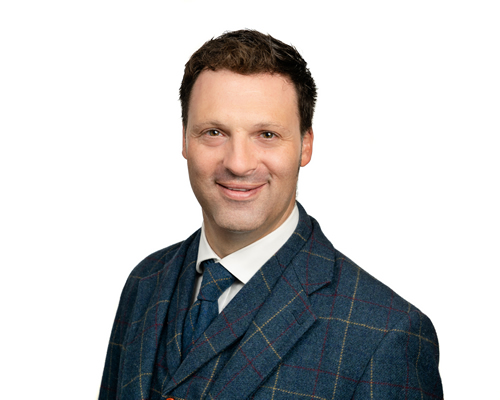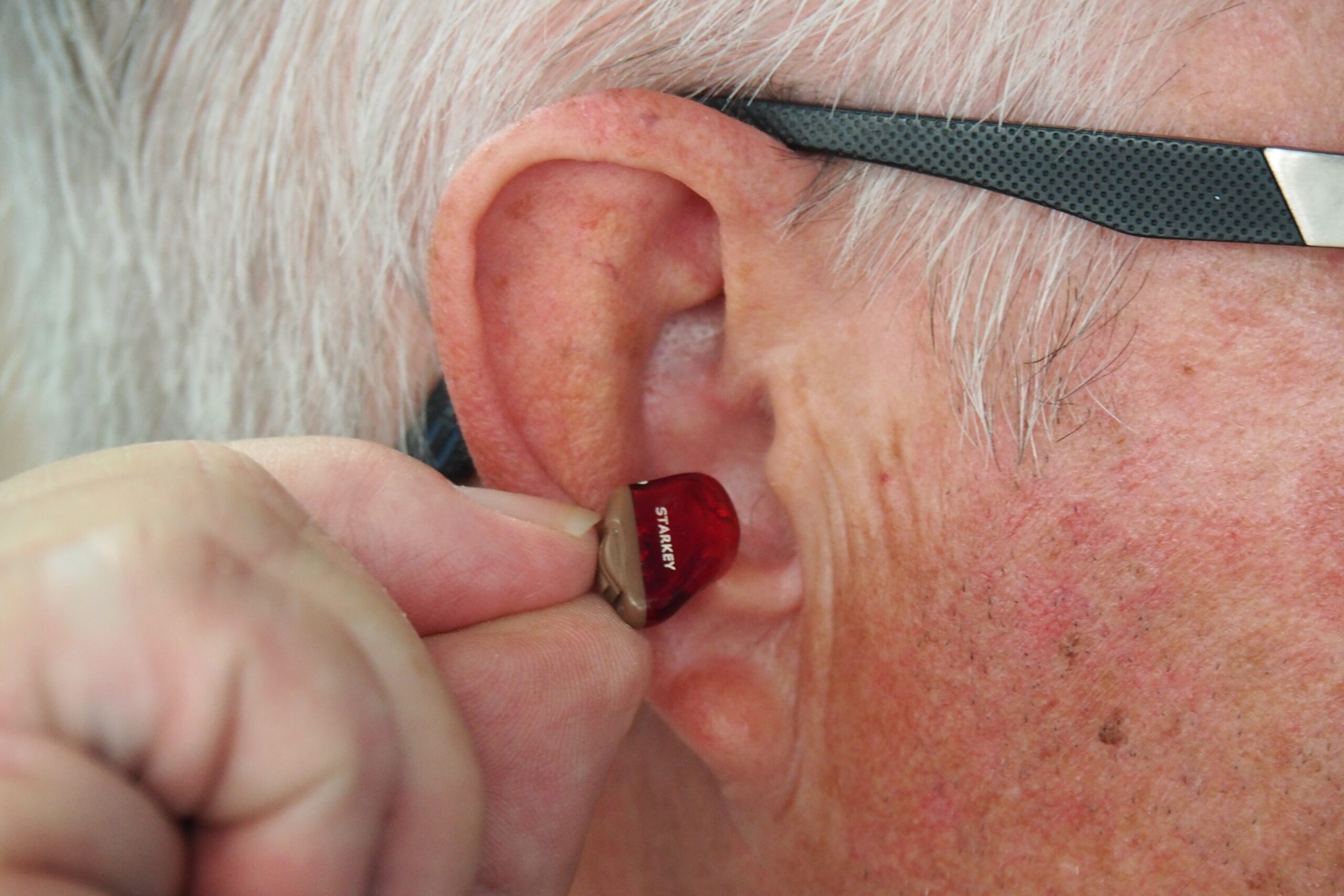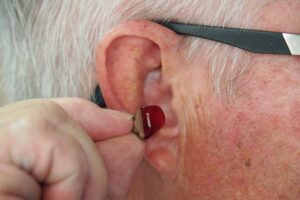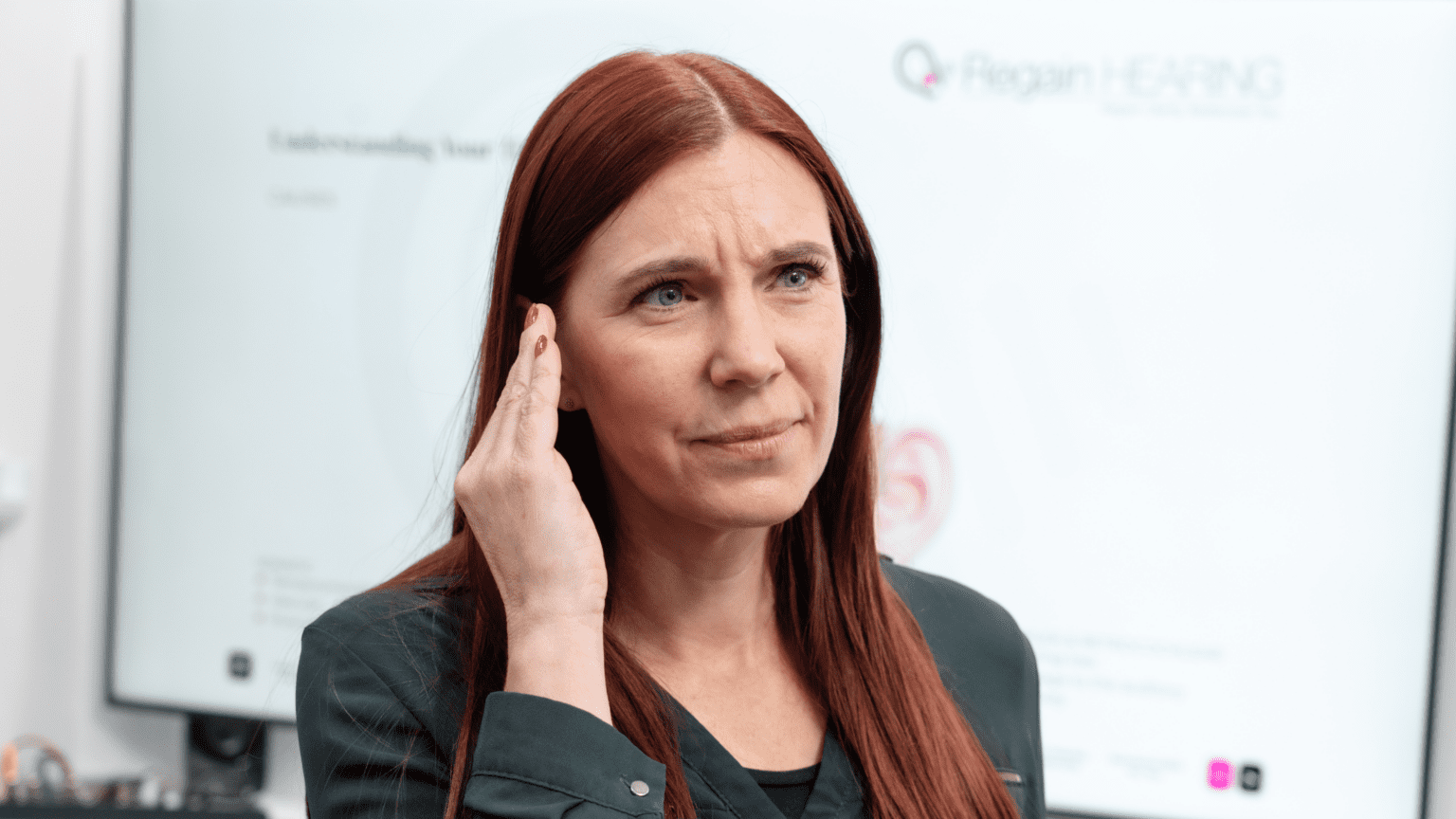In the UK, hearing aids can cost anywhere from £1990 to £5,490 depending on the technology level, features, and provider. Although hearing aids can be quite expensive, the cost is well worth improving your quality of life.
Healthy hearing is vital to living a fulfilling life, and even mild hearing loss has been scientifically proven to increase cognitive decline, Alzheimer’s and dementia. Hearing loss can make one feel isolated from friends and family and less likely to participate in social activities. It can begin as a minor problem but have severe consequences later on.
In this blog, we’ll discuss the different types of hearing aids and what you can expect throughout the entire process.
Price ranges for hearing aids
Whilst even the most basic hearing aids come with essential functions, the price of a hearing aid is influenced by the adjustment ability and the sound quality.
Here are the typical Regain Hearing price ranges for 2024:
- Core: £1,990 – All the basics that you require including digital processing, multi-microphone listening.
- Essential: £2,790 – All of the above with 3 star sound quality with basic adjustments.
- Standard: £3,690- 3.5 star sound quality with manual adjustments. Tinnitus treatment and unlimited updates!
- Advanced: £4590 – 4 star sound quality with semi-auto adjustment.
- Premium Hearing Aids: £5,490 – 5 star full automatic adjustments and award-winning performance.
What’s Included in the Cost of Hearing Aids?
Every ear is different, therefore every hearing device is different. When you see the sticker price of a hearing aid at private clinics, it can seem high. But that price typically includes hearing tests by professional audiologists, the devices themselves, customised fitting, and a trial period for adjustments and maintenance afterwards. This trial period ensures that the hearing aids fit well and the initial programming suits your everyday needs. At Regain Hearing, we include free servicing, testing, and aftercare for life.
When you buy hearing aids over-the-counter or at big box stores, you can usually find deals on a pair for less than £1,000. It’s important to remember that the lower price doesn’t have the bundled benefits of personalised auditory services. You may save up front, but it could cost you frustration and more money later on as you figure out the device yourself. These manufacturers depend on your sale and don’t provide the before and aftercare to have quality hearing restoration.
What affects the cost of a hearing aid?
The price of hearing aids in the UK very much depends on the type of hearing aid you need and the suitability of the device for your lifestyle. Here are the main factors that impact hearing aid prices:
-
Technology Level
Hearing aids come in various technology levels, from basic to premium. Basic hearing aids provide essential features suitable for quieter environments, while premium models offer advanced technology, such as automatic adjustments, noise cancellation, and connectivity with other devices.
-
Features and Specifications
The specific features of a hearing aid significantly affect its cost. Features like rechargeable batteries, Bluetooth connectivity, telecoils, directional microphones, and tinnitus masking can increase the price. Premium models typically include more advanced features to handle complex listening environments effectively.
-
Customisation and Fitting
Custom-made hearing aids, designed to fit the exact shape of the user’s ear canal, are generally more expensive than standard models. The level of personalisation required for optimal fit and comfort also influences the price.
-
Service and Aftercare
The cost often includes professional services such as hearing tests, fittings, follow-up adjustments, and long-term aftercare. Private providers may offer more comprehensive aftercare and faster service than the NHS, which can justify the higher cost.
-
Brand and Manufacturer
Different brands and manufacturers offer a range of products at various price points. Well-known brands with a reputation for quality and innovation typically charge more for their devices. Some high street retailers might have exclusive agreements with certain manufacturers, influencing the price range available.
-
Purchase Route
Hearing aids can be obtained through the NHS, high street retailers, or independent audiologists. NHS hearing aids are free but have a limited selection. High street retailers and independent audiologists offer a broader range of options and superior service, usually at a higher cost.
-
Warranty and Insurance
Including a warranty or insurance can also affect the overall price. These options provide peace of mind against damage, loss, or technical issues but add to the initial purchase cost.
For detailed information on specific models and pricing, consulting with a professional audiologist or retailer is recommended.
Customisation and Different Hearing Aids
Hearing aid technology has advanced in recent years. Many new modifications allow for Bluetooth connectivity to your smartphone or TV, and some models fit so snugly within the ear canal that they are hardly noticeable. When you think of hearing aids, you may envision a large and unsightly machine attached to your ear. The stigma surrounding hearing aids and ageing prevents many people from seeking the help they need that could drastically improve their quality of life. However, more discreet options like invisible completely in the canal (CIC) models allow you to enjoy full hearing without clunky machinery. Still, they may be on the higher end of the price spectrum.
More common models like the full shell or behind the ear may have longer battery life and more adaptability when controlling day-to-day noises that smaller hearing aids don’t, but are more noticeable outside the ear. These options are typically on the lower end of the price range. The more technologically advanced the hearing aids are, the higher the price.
After you’ve decided on the model, fitting the hearing aid to your ear is essential for your everyday comfort and satisfaction. Depending on the type of hearing aid, taking a physical mould of your ear canal may be necessary for a snug fit. Fitting and customisation also include adapting your hearing aid to the results from the auditory examination. Programming the hearing aid to your specific needs is ongoing and may require adjustments over time, especially after testing them in real-world conditions.
Once we’ve established your needs, your audiologist will work with you to find the best model suited for you and within your budget. Financing plans are available for every budget, and when you trust expert audiologists, you know you are getting the best care to help you hear again.
The Takeaway
This is another way to think about hearing aid prices: If you pay £3,500 upfront for a product with a lifespan of eight years, that’s £438 per year or about £1.20 per day. When you break it down like this, it makes the price tag much more digestible. Hearing aids can be expensive, but they’re well worth the investment to prevent cognitive decline and isolation and help you thoroughly enjoy your life. You can’t put a price on that.








